Economic freedom on the wane across Canada
CALGARY—Canadian provinces once again lag behind U.S. states in economic freedom, finds a new report released today by the Fraser Institute, an independent, non-partisan, public policy think-tank. Economic freedom—the ability of individuals to make their own economic decisions about what to buy, where to work and whether to start a business—remains fundamental to prosperity.- Tuesday, November 23, 2021

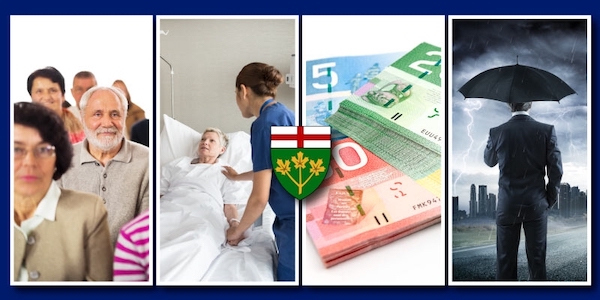
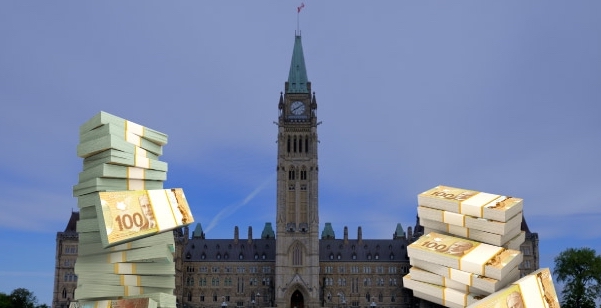 TORONTO—Ontario is on track to become a “have not” province by 2025 due to a design flaw in Canada’s equalization program, finds a new study released today by the Fraser Institute, an independent, non-partisan Canadian public policy think-tank.
“Based on projections, it’s likely that Ontario will become a have-not province in 2025/26, which affects not only the province but others because it will reduce the amount of equalization money available to current equalization recipients,” said Ben Eisen, senior fellow at the Fraser Institute and co-author of
TORONTO—Ontario is on track to become a “have not” province by 2025 due to a design flaw in Canada’s equalization program, finds a new study released today by the Fraser Institute, an independent, non-partisan Canadian public policy think-tank.
“Based on projections, it’s likely that Ontario will become a have-not province in 2025/26, which affects not only the province but others because it will reduce the amount of equalization money available to current equalization recipients,” said Ben Eisen, senior fellow at the Fraser Institute and co-author of  VANCOUVER—Despite spending more on health care than most other developed countries with universal coverage, Canada has some of the lowest numbers of doctors, hospital beds, and medical technologies—and the longest wait times, finds a new study released today by the Fraser Institute, an independent, non-partisan Canadian public policy think-tank.
“There is a clear imbalance between the high cost of Canada’s health-care system and the value Canadians receive in terms of availability of resources and timely access to care” said Bacchus Barua, Director of health policy studies at the Fraser Institute and co-author of Comparing Performance of Universal Health Care Countries, 2021.
VANCOUVER—Despite spending more on health care than most other developed countries with universal coverage, Canada has some of the lowest numbers of doctors, hospital beds, and medical technologies—and the longest wait times, finds a new study released today by the Fraser Institute, an independent, non-partisan Canadian public policy think-tank.
“There is a clear imbalance between the high cost of Canada’s health-care system and the value Canadians receive in terms of availability of resources and timely access to care” said Bacchus Barua, Director of health policy studies at the Fraser Institute and co-author of Comparing Performance of Universal Health Care Countries, 2021.
 TORONTO—Despite misperceptions, the vast majority of minimum-wage earners in Ontario don’t live in low-income households, finds a new study released today by the Fraser Institute, an independent, non-partisan Canadian public policy think-tank.
Between 2009 and 2019, Ontario raised the minimum wage by 24 per cent to $14 an hour, and some groups—including the province’s official Opposition—continue to push for an even higher minimum wage.
TORONTO—Despite misperceptions, the vast majority of minimum-wage earners in Ontario don’t live in low-income households, finds a new study released today by the Fraser Institute, an independent, non-partisan Canadian public policy think-tank.
Between 2009 and 2019, Ontario raised the minimum wage by 24 per cent to $14 an hour, and some groups—including the province’s official Opposition—continue to push for an even higher minimum wage.
 CALGARY—Since 2015, federal spending on Indigenous programs has skyrocketed from $12.4 billion to $24 billion for fiscal year 2021/22, finds a new study released today by the Fraser Institute, an independent, non-partisan Canadian public policy think-tank.
In other words, Indigenous federal spending increased by 94.3 per cent since 2015 (after adjusting for inflation).
CALGARY—Since 2015, federal spending on Indigenous programs has skyrocketed from $12.4 billion to $24 billion for fiscal year 2021/22, finds a new study released today by the Fraser Institute, an independent, non-partisan Canadian public policy think-tank.
In other words, Indigenous federal spending increased by 94.3 per cent since 2015 (after adjusting for inflation).
 VANCOUVER—Replacing coal-fired power in Canada with renewable energy will impose significant costs on Canada’s economy while only making modest reductions in greenhouse gas emissions, finds a new study released today by the Fraser Institute, an independent, non-partisan Canadian public policy think-tank.
“Despite what advocates claim, renewable power—including wind and solar—isn’t free and comes with only modest benefits to the environment,” said G. Cornelis van Kooten, economics professor at the University of Victoria, senior fellow at the Fraser Institute and author of Canadian Climate Policy and its Implications for Electricity Grids.
VANCOUVER—Replacing coal-fired power in Canada with renewable energy will impose significant costs on Canada’s economy while only making modest reductions in greenhouse gas emissions, finds a new study released today by the Fraser Institute, an independent, non-partisan Canadian public policy think-tank.
“Despite what advocates claim, renewable power—including wind and solar—isn’t free and comes with only modest benefits to the environment,” said G. Cornelis van Kooten, economics professor at the University of Victoria, senior fellow at the Fraser Institute and author of Canadian Climate Policy and its Implications for Electricity Grids.
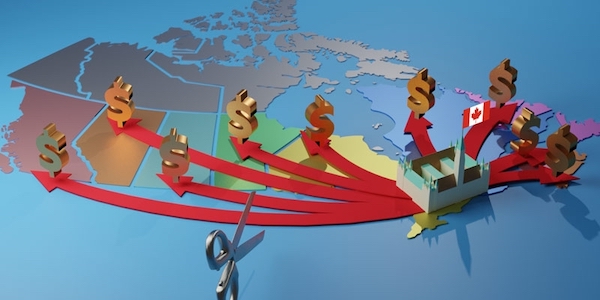 VANCOUVER—Fundamental reform of Canada’s health care system needs to start with replicating changes made in the 1990s when Ottawa removed strings to federal funding for welfare to provide the provinces with more autonomy and flexibility, finds a new study released today by the Fraser Institute, an independent, non-partisan Canadian public policy think-tank.
“COVID-19 has exacerbated two of the most important ongoing public policy challenges facing Canada: the deterioration of government finances, and the comparative underperformance of our health care system,” said Ben Eisen, senior fellow at the Fraser Institute and co-author of
VANCOUVER—Fundamental reform of Canada’s health care system needs to start with replicating changes made in the 1990s when Ottawa removed strings to federal funding for welfare to provide the provinces with more autonomy and flexibility, finds a new study released today by the Fraser Institute, an independent, non-partisan Canadian public policy think-tank.
“COVID-19 has exacerbated two of the most important ongoing public policy challenges facing Canada: the deterioration of government finances, and the comparative underperformance of our health care system,” said Ben Eisen, senior fellow at the Fraser Institute and co-author of  VANCOUVER—Due in part to Canada’s unfavourable business environment—which includes higher taxes, more regulation and lack of pipeline capacity—oil and gas investors will likely continue to divert investments from Canada to the United States, finds a new study released today by the Fraser Institute, an independent, non-partisan Canadian public policy think-tank.
“Financial capital is mobile, so policymakers in Canada must understand that government policies have helped facilitate the flight of oil and gas investment from Canada to the U.S.,” said Steven Globerman, professor emeritus at Western Washington University, resident scholar at the Fraser Institute and co-author of
VANCOUVER—Due in part to Canada’s unfavourable business environment—which includes higher taxes, more regulation and lack of pipeline capacity—oil and gas investors will likely continue to divert investments from Canada to the United States, finds a new study released today by the Fraser Institute, an independent, non-partisan Canadian public policy think-tank.
“Financial capital is mobile, so policymakers in Canada must understand that government policies have helped facilitate the flight of oil and gas investment from Canada to the U.S.,” said Steven Globerman, professor emeritus at Western Washington University, resident scholar at the Fraser Institute and co-author of 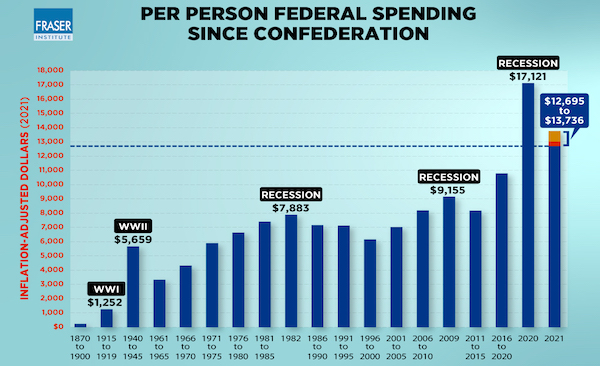 VANCOUVER— Per-person federal program spending is expected to reach a minimum of $13,032 in 2021/22 (adjusted for inflation), which is 34.8 per cent higher than in 2019, pre-COVID, finds a new study released today by the Fraser Institute, an independent, non-partisan Canadian public policy think-tank.
VANCOUVER— Per-person federal program spending is expected to reach a minimum of $13,032 in 2021/22 (adjusted for inflation), which is 34.8 per cent higher than in 2019, pre-COVID, finds a new study released today by the Fraser Institute, an independent, non-partisan Canadian public policy think-tank.
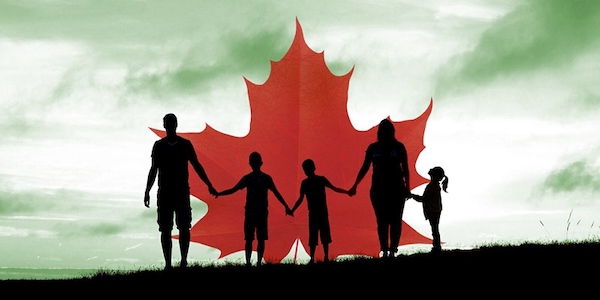 VANCOUVER—Despite spending an additional $5.6 billion in 2019-20, the new Canada Child Benefit only moved an estimated 90,900 children above Statistics Canada’s Low-Income Cut-Off, a key measure of low-income, finds a new essay released today by the Fraser Institute, an independent, non-partisan Canadian public policy think-tank.
“One of the stated goals of the Canada Child Benefit was to help lift children out of poverty, but most of the households that benefit from this new program compared to the previous ones were never living in poverty in the first place,” said Professor Christopher Sarlo, senior fellow at the Fraser Institute and author of
VANCOUVER—Despite spending an additional $5.6 billion in 2019-20, the new Canada Child Benefit only moved an estimated 90,900 children above Statistics Canada’s Low-Income Cut-Off, a key measure of low-income, finds a new essay released today by the Fraser Institute, an independent, non-partisan Canadian public policy think-tank.
“One of the stated goals of the Canada Child Benefit was to help lift children out of poverty, but most of the households that benefit from this new program compared to the previous ones were never living in poverty in the first place,” said Professor Christopher Sarlo, senior fellow at the Fraser Institute and author of  MONTRÉAL—As Canadians and policymakers consider changes to long-term care, it’s important to recognize and learn lessons from more successful long-term care systems in other countries with universal health care, finds a new study released today by the Fraser Institute, an independent, non-partisan Canadian public policy think-tank.
“The difficulties in meeting the care needs of the elderly in nursing homes or at home in Canada long precede the arrival of the COVID-19 pandemic,” explained Yanick Labrie, senior fellow at the Fraser Institute and author of
MONTRÉAL—As Canadians and policymakers consider changes to long-term care, it’s important to recognize and learn lessons from more successful long-term care systems in other countries with universal health care, finds a new study released today by the Fraser Institute, an independent, non-partisan Canadian public policy think-tank.
“The difficulties in meeting the care needs of the elderly in nursing homes or at home in Canada long precede the arrival of the COVID-19 pandemic,” explained Yanick Labrie, senior fellow at the Fraser Institute and author of  TORONTO—Economic growth and business investment in Canada have been faltering, which has severely weakened the country’s ability to encourage innovation or new business start-ups, finds a new study released today by the Fraser Institute, an independent, non-partisan Canadian public policy think-tank.
“Canada’s sluggish economic growth in the years before the pandemic reflects a lack of innovation and weak productivity growth,” said Philip Cross, senior fellow at the Fraser Institute and author of Canada’s Faltering Business Dynamism and Lagging Innovation.
TORONTO—Economic growth and business investment in Canada have been faltering, which has severely weakened the country’s ability to encourage innovation or new business start-ups, finds a new study released today by the Fraser Institute, an independent, non-partisan Canadian public policy think-tank.
“Canada’s sluggish economic growth in the years before the pandemic reflects a lack of innovation and weak productivity growth,” said Philip Cross, senior fellow at the Fraser Institute and author of Canada’s Faltering Business Dynamism and Lagging Innovation.
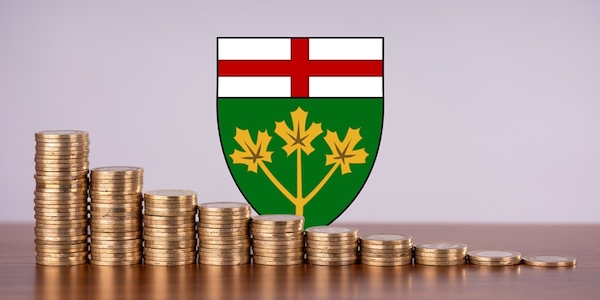 TORONTO—Ontario has experienced weak business investment over the past two decades with one of the lowest growth rates in the country, finds a new study released today by the Fraser Institute, an independent, non-partisan Canadian public policy think-tank.
“The decline of Ontario’s manufacturing sector in the 2000s, the 2008/09 recession, and a tepid recovery have combined to create an extended period of economic weakness for the province,” said Ben Eisen, senior fellow at the Fraser Institute and co-author of
TORONTO—Ontario has experienced weak business investment over the past two decades with one of the lowest growth rates in the country, finds a new study released today by the Fraser Institute, an independent, non-partisan Canadian public policy think-tank.
“The decline of Ontario’s manufacturing sector in the 2000s, the 2008/09 recession, and a tepid recovery have combined to create an extended period of economic weakness for the province,” said Ben Eisen, senior fellow at the Fraser Institute and co-author of  VANCOUVER—A typical Canadian family of four will pay an estimated $15,039 for public health-care insurance this year, finds a new study released today by the Fraser Institute, an independent, non-partisan Canadian public policy think-tank.
“Canadians pay a substantial amount of money for health care through a variety of taxes—even if we don’t pay directly for medical services,” said Bacchus Barua, associate director of health policy studies at the Fraser Institute and co-author of
VANCOUVER—A typical Canadian family of four will pay an estimated $15,039 for public health-care insurance this year, finds a new study released today by the Fraser Institute, an independent, non-partisan Canadian public policy think-tank.
“Canadians pay a substantial amount of money for health care through a variety of taxes—even if we don’t pay directly for medical services,” said Bacchus Barua, associate director of health policy studies at the Fraser Institute and co-author of  TORONTO—In the Fraser Institute’s annual
TORONTO—In the Fraser Institute’s annual  TORONTO—Building codes in Canada contribute to homelessness by reducing the supply of low-income housing, finds a new study released today by the Fraser Institute, an independent, non-partisan Canadian public policy think-tank.
“When addressing homelessness, well-intentioned policymakers often overlook the significant issue of building codes and how they can actually make the lives of low-income people much worse,” said John Palmer, Professor Emeritus from the University of Western Ontario and co-author of
TORONTO—Building codes in Canada contribute to homelessness by reducing the supply of low-income housing, finds a new study released today by the Fraser Institute, an independent, non-partisan Canadian public policy think-tank.
“When addressing homelessness, well-intentioned policymakers often overlook the significant issue of building codes and how they can actually make the lives of low-income people much worse,” said John Palmer, Professor Emeritus from the University of Western Ontario and co-author of  CALGARY—The debt the federal government is expected to accumulate now, and in the future, will be disproportionately paid for by younger Canadians, finds a new study released today by the Fraser Institute, an independent, non-partisan Canadian public policy think-tank.
CALGARY—The debt the federal government is expected to accumulate now, and in the future, will be disproportionately paid for by younger Canadians, finds a new study released today by the Fraser Institute, an independent, non-partisan Canadian public policy think-tank.
 VANCOUVER—This Labour Day, workers and employers should push for improved productivity, the key to a four-day workweek and more work-from-home opportunities, suggests an article released today by the Fraser Institute, an independent, non-partisan Canadian public policy think-tank.
“The pandemic has encouraged workplace innovations that can continue into the future if workers become more productive,” said Steven Globerman, resident scholar at the Fraser Institute and author of Four-Day Work Week and Work-From-Home Initiatives Hinge on Improving Productivity.
VANCOUVER—This Labour Day, workers and employers should push for improved productivity, the key to a four-day workweek and more work-from-home opportunities, suggests an article released today by the Fraser Institute, an independent, non-partisan Canadian public policy think-tank.
“The pandemic has encouraged workplace innovations that can continue into the future if workers become more productive,” said Steven Globerman, resident scholar at the Fraser Institute and author of Four-Day Work Week and Work-From-Home Initiatives Hinge on Improving Productivity.
 TORONTO—The costs of government regulation, including labour regulations such as licencing and accreditation, represent a real barrier for Canadians—especially low-income Canadians—trying to move up the income ladder, finds a new study released today by the Fraser Institute, an independent, non-partisan Canadian public policy think-tank.
“Government regulations impede the ability of Canadians to make themselves better off by slowing the upward mobility of workers,” said Vincent Geloso, an assistant professor of economics at George Mason University, senior fellow at the Fraser Institute and co-author of
TORONTO—The costs of government regulation, including labour regulations such as licencing and accreditation, represent a real barrier for Canadians—especially low-income Canadians—trying to move up the income ladder, finds a new study released today by the Fraser Institute, an independent, non-partisan Canadian public policy think-tank.
“Government regulations impede the ability of Canadians to make themselves better off by slowing the upward mobility of workers,” said Vincent Geloso, an assistant professor of economics at George Mason University, senior fellow at the Fraser Institute and co-author of